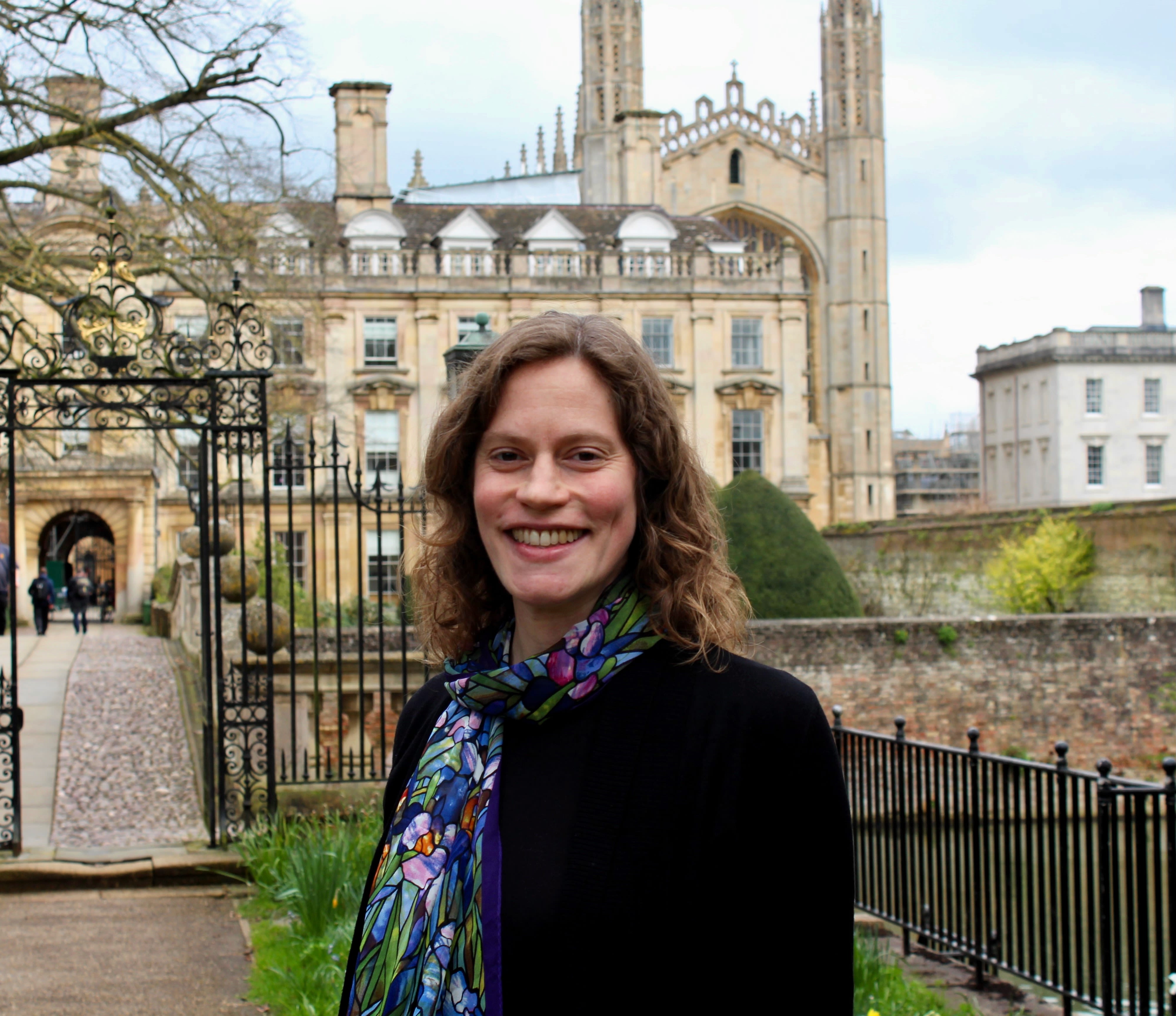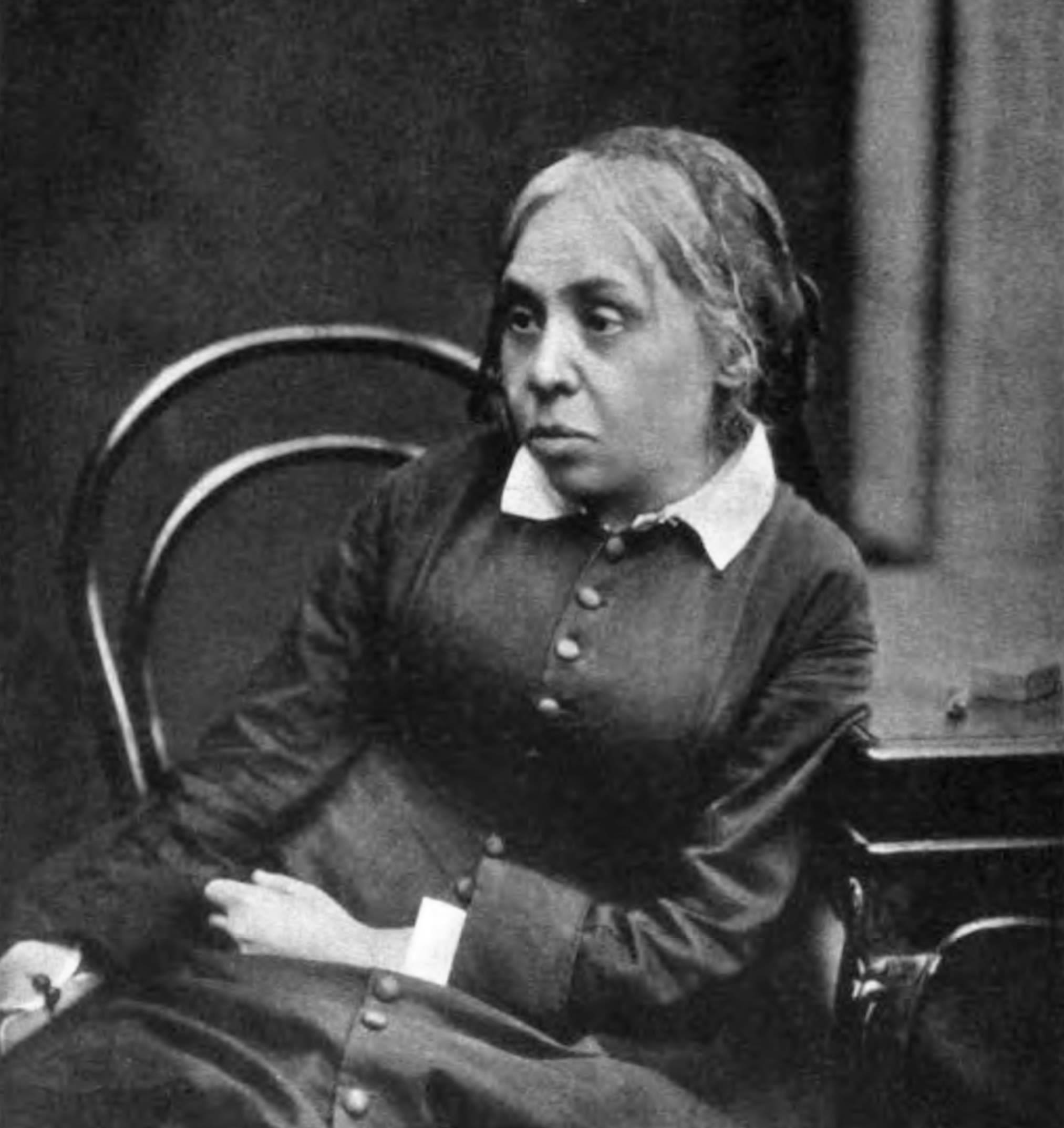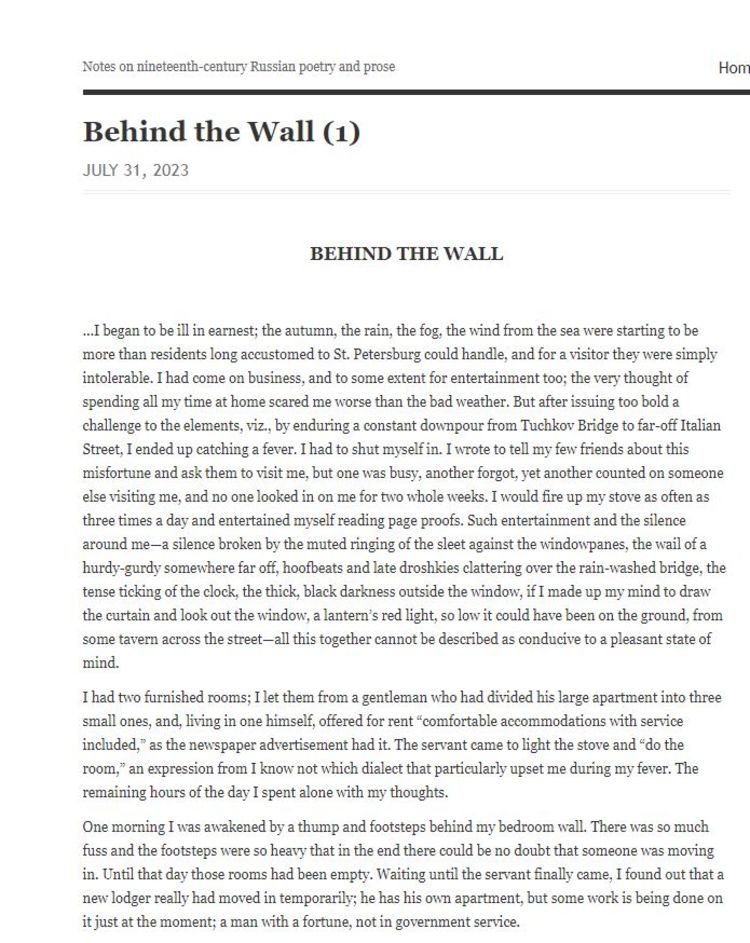From Russia with love

Anna completed her B.A. at Brown University, her M.Phil. at the University of Cambridge, and her Ph.D. at Princeton University. She is currently Assistant Professor in the Slavonic section of the Faculty of Modern and Medieval Languages and Linguistics.
Anna started studying Russian in high school, not because of a burning interest, simply because the school had an excellent Russian teacher (much better than the French teachers). After learning Russian for a couple years, Anna wanted to do a homestay, but in the late 1990s, no exchange programmes for high school students included Russia. So instead, she found Earthwatch (a non-profit that allows lay people to go on expeditions to help researchers with their work) and a project called ‘Witches and Hobgoblins of Rural Russia’. At the age of 17, Anna joined a Russian folklore collector and travelled to a rural village to help with her research. Having fallen in love with the Russian babushki (grandmothers) in the village, Anna continued to work with this folklore collector for many years during her summers and breaks between terms, travelling to diverse regions of Russia. Reading War and Peace for the first time in English sealed the deal, and Anna went on to study Russian as an undergraduate, spending half of her third year in St Petersburg, and then returning after graduation for a year as a Fulbright Scholar.
Anna is currently working on restoring the legacy of Nadezhda Khvoshchinskaya (1821–1889), one of Russia’s greatest forgotten novelists. One of three literary sisters (the ‘Russian Brontës’), Nadezhda was the third highest paid author in Russia by the 1870s, yet she disappeared from literary history in the twentieth century as the Bolsheviks nationalised the works of fifty-seven writers – all men – for publication in greater quantities.
Khvoshchinskaya began her career with over one hundred poems before turning to fiction to support her parents, sisters, and aunts, with over a dozen novels, thirty-six tales and stories, fifty-four translations from five languages, and over two dozen articles and reviews. Khvoshchinskaya wrote about the great questions facing Russia at the time: serfdom, class relations, gender relations, the family, education, ethics, justice, government, and the role of the nobility who staffed the military and civil service and ran Russia’s empire. She wrote all her novels and tales under a male pseudonym, V. Krestovsky, and her narrators were often male, but her works offer a penetrating look at the struggles faced by women navigating the
constraints of an oppressive patriarchal system and of gentile poverty.

Dr Anna Berman
Dr Anna Berman

Nadezhda Khvoshchinskaya
Nadezhda Khvoshchinskaya

An excerpt from 'Behind the Wall'
An excerpt from 'Behind the Wall'
A favourite work of Anna’s that is available in English is the short story ‘Behind the Wall’ (1862). The story challenges the meaning of marriage
and societal ideas about women through a series of encounters between a couple who disagree on whether to wed. The pair had an affair several years before the time of the story, and when the story opens, the woman’s husband has died and she has come to St. Petersburg hoping that her former lover will now marry her. He is a proponent of women’s liberation and does not believe in the binding institution of marriage. She wants the social sanction of marriage so that society will not shun her. The story is formally fascinating, because we never actually see the couple; the whole thing is narrated by the man living in the adjacent apartment, who is listening from ‘behind the wall’ as the drama unfolds.
With the war in the Ukraine, Russia’s traditional canon of male authors – many of them imperialists – has come under renewed scrutiny. Anna believes this is the ideal moment to restore Nadezhda Khvoshchinskaya to the canon. As a woman writer and a pacifist — one who was widely considered one of the greatest writers of her day — she upends many assumptions about ‘classic Russian literature’. But bringing a writer back from obscurity is far from simple, especially at a time when Russian culture in general is facing push-back. Together with Hilde Hoogenboom (Associate Professor of Russian in the School of International Letters and Cultures at Arizona State University), Anna has helped establish an international team of scholars and translators who are working on a many-sided ‘PR campaign’ for Khvoshchinskaya. This included the first international Khvoshchinskaya conference, hosted at Clare College in April 2023, and an adjacent translation event at Pushkin House, London; public lectures and blog posts; pitching translations to top publishers, conference panels at international conferences, and a number of scholarly publications.
Anna is currently co-editing a volume, The Sisters Khvoshchinskaya, with Hoogenboom. Her long-term project is researching and writing Nadezhda Khvoshchinskaya: Life and Works, a concise, accessible biography aimed at scholars, students, and the general reader. She has just been awarded a Leverhulme Fellowship, granting a period of research leave to work on Russia’s greatest forgotten novelist.

